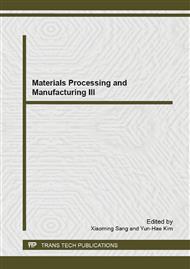p.2816
p.2821
p.2825
p.2829
p.2837
p.2841
p.2845
p.2851
p.2855
The Effect of Anxiety Emotion on Information Processing of Decision Making: Based on Computer Stimulate
Abstract:
The effect of anxiety emotion on information processing of decision making was explored by computer stimulate experiment. The results showed that people with high anxiety used longer time to processing information than that with low anxiety. The depth of information search of low anxiety was more than that of high anxiety. Individual with high anxiety was inclined to use heuristic strategies, and Individual with low anxiety was inclined to adopt analysis strategies.
Info:
Periodical:
Pages:
2837-2840
Citation:
Online since:
August 2013
Authors:
Price:
Сopyright:
© 2013 Trans Tech Publications Ltd. All Rights Reserved
Share:
Citation:


